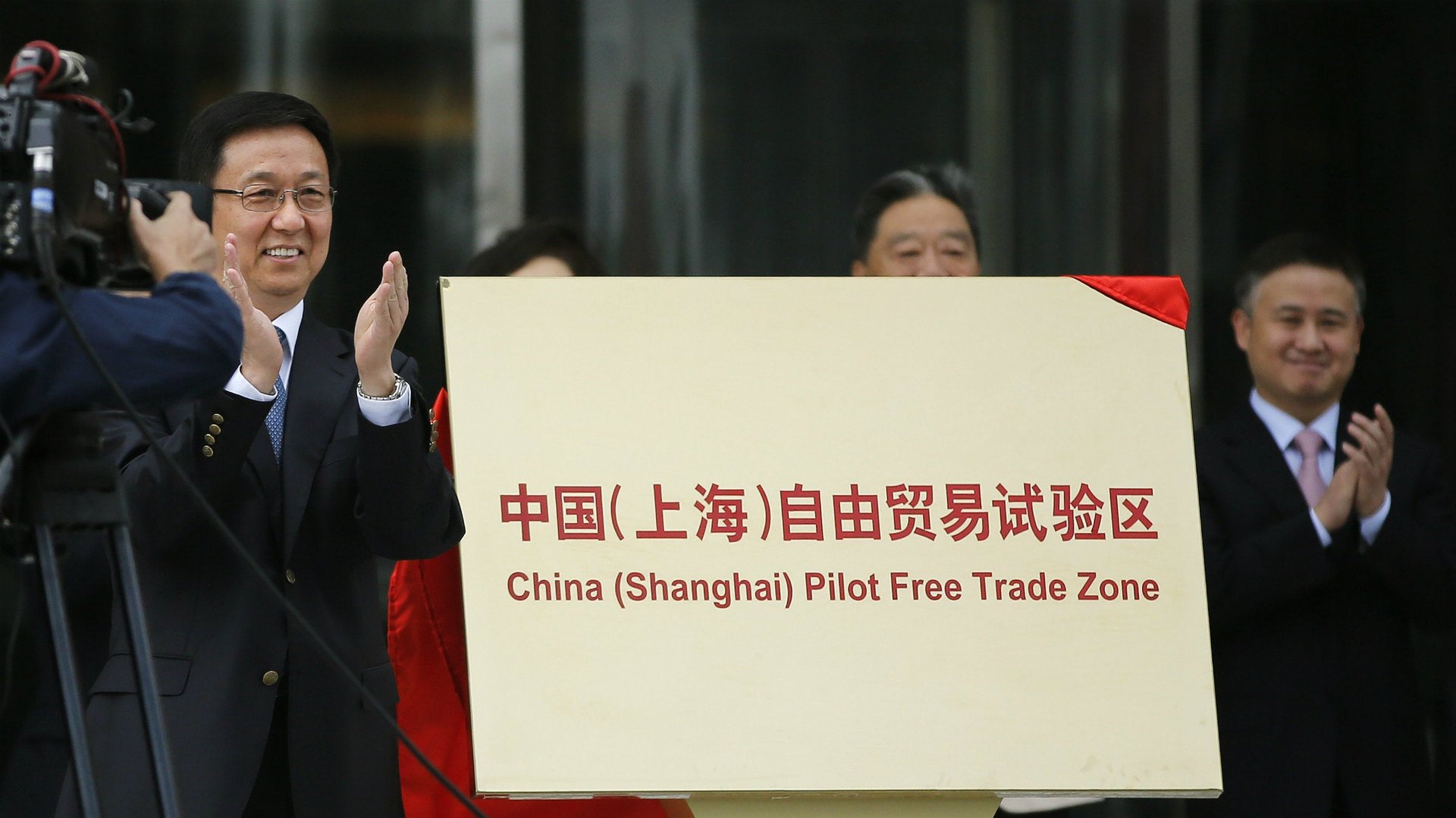Nukes and oil trading: Yes. Golf courses and porn: No. More on Shanghai’s “Free” Trade Zone
As promised, China opened the much-anticipated Shanghai Free Trade Zone on Sept. 29, with a ceremony that included speeches and a line-up of officials (but no premier Li Keqiang).


As promised, China opened the much-anticipated Shanghai Free Trade Zone on Sept. 29, with a ceremony that included speeches and a line-up of officials (but no premier Li Keqiang).
The zone has rolled out the red carpet for foreign service businesses like law firms, travel agencies and bars, as Quartz previously reported, as well as waived taxes and streamlined customs to encourage the transport of goods. Foreign companies in the zone will be able to invest in domestic fund markets and issue Renminbi-denominated bonds, officials said Sunday, and there is even a plan to set up an international crude oil futures trading platform.
But the Shanghai Free Trade Zone comes with a lot of asterisks, as detailed on Monday by the government’s ”negative list” (link in Chinese) of industries and activities that are closed to foreign investment or restricted in some way. For the 82% of industry categories that aren’t on the list, a business license and registration can be obtained in four days, said Shanghai Free Trade Zone deputy director Dai Haibo. But if your business falls into the forbidden zone, you’re either out of luck or in for some daunting red tape:
Rare earths: Foreign investors are banned from “tungsten, molybdenum, tin, antimony, and rare earth mining, radioactive mineral extraction, and ore-dressing.”
Energy assets: Oil, natural gas, coal, oil shale, oil sands and any exploration projects are only allowed as a joint venture with a Chinese company.
Agriculture: Foreign investors in cotton, grain and oil-producing seed crops must invest at least $2 million, and give the government a controlling stake. Foreign companies investing in Chinese herbal medicine planting, precious woods and new types of seeds and crops need a Chinese joint venture partner.
Nuclear power plants: Foreign investors are welcome to build and manage plants, but they must be owned by China.
Media: Not surprisingly, foreign companies are still completely banned from investing in “news organizations,” the “publication of books, journals and newspapers,” audiovisual products and “e-publications,” broadcasting stations, “news portals, netcasting service, internet bars, and cultural products on the internet,” with the exception of music products on the internet. Paging Spotify?
Golf courses: Once banned by Chairman Mao as a bourgeois pleasure, golf has been more recently been embraced with a zeal bordering on obsession; China has become the largest market for many golf-related goods. Still, Shanghai’s rules say, there is “no foreign investment in building or managing golf course allowed.”
Pornography: Technically, pornography is illegal in China and the government has spent a huge amount of time and effort trying to wipe it out by jailing producers and purveyors of adult material. That won’t change in the free trade zone: “No foreign investment allowed in pornography.”
What the negative list doesn’t mention, thankfully, is web design firms. Judging by the trade zone website’s flying bird motif and outdated graphics, business opportunities abound.
Jennifer Chiu contributed reporting.